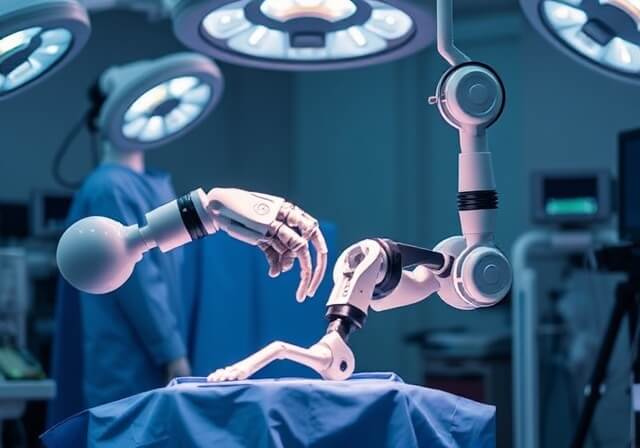Robot programming is accomplished in several ways. Consistent with current industrial practice we divide the programming methods into two basic types:
- Lead through methods
- Textual robot languages
The lead through methods require the programmer to move the manipulator through the desired motion path and that the path be committed to memory by the robot controller.
The lead through methods are sometimes referred to as ‘teach-by-showing’ methods. Chronologically, the lead through methods represent the first real robot programming methods used in industry.
They had their beginnings in the early 1960s when robots were first being used for industrial applications.
Robot programming with textual languages is accomplished somewhat like computer programming. The programmer types in the program on a CRT (cathode ray tube) monitor using a high-level English-like language.
The procedure is usually augmented by using lead through techniques to teach the robot the locations of points in the workspace. The textual languages started to be developed in the 1970s, with the first commercial language appearing around 1979.
In addition to the lead through and textual language programming, another method of programming is used for simple, low-technology robots.
We referred to these types of machines as limited sequence robots which are controlled by means of mechanical stops and limit switches to define the end points of their joint motions.
The setting of these stops and switches might be called a programming method. We prefer to think of this kind of programming as a manual set-up procedure.
In this chapter, the lead through methods will be discussed along with the basic features and capabilities of these programming methods.
What functions must a typical robot be able to do, and how is it taught to do these functions using lead through programming? In the following chapter, the textual programming languages and their capabilities will be examined.
| Read More Topics |
| Robotic vision and control |
| Configuration of robot controller |
| Control system in mechatronics |
| Mechatronics system design |





